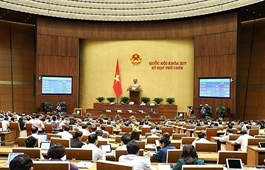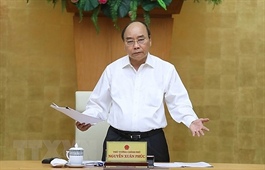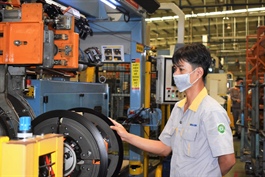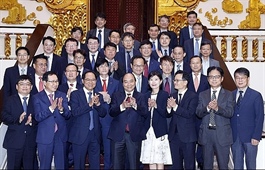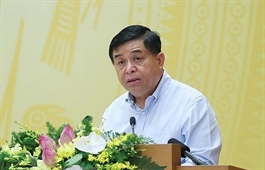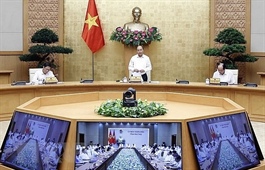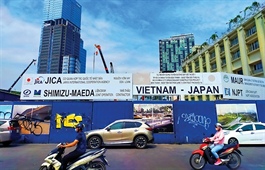Vietnam preparing international labour resources
Vietnam preparing international labour resources
Vietnam’s labour sector is strongly integrating globally. Director general of the General Directorate of Vocational Education and Training Truong Anh Dung talked with VIR’s Hoang Oanh on plans to renovate training and improve the quality of human resources to meet rising demands.
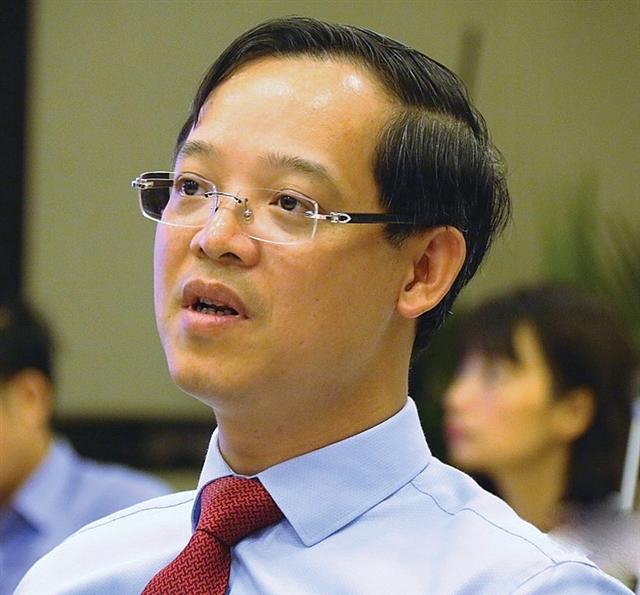
Director general of the General Directorate of Vocational Education and Training Truong Anh Dung
|
The movement of young Vietnamese labourers to ASEAN countries and other countries worldwide has been a rising trend in recent years. How is the vocational system in Vietnam prepared to latch onto this?
The first important move is that Vietnam has built a national qualification framework compatible with the national qualification framework of ASEAN countries. Second, Vietnam has developed and implemented mutual recognition agreements in education and training between Vietnam and other ASEAN members, creating a premise to promote training and integration in vocational training. Occupations such as accountants, architects, dentists, doctors, engineers, nurses, surveyors, and tourism staff are accredited by ASEAN governments, and processes have been set up for highly-skilled labour and experts working in the region.
Third, Vietnam has received transfers and organised international-branded training programmes in some fields of agriculture from countries such as Australia, Germany, and Malaysia. This helps the Vietnamese labour force in some key industries to become ready to integrate more effectively into regional and worldwide labour markets.
What do you think about the prospects of international co-operation for Vietnam in the field of vocational training?
When we promote international co-operation towards mutual recognition of capacity, qualifications, and labour, we will integrate more effectively. Therefore, international co-operation on training high-quality human resources is an important solution to innovate and improve quality of the vocational system.
We are also utilising the support of developed countries, including their experiences and resources in supporting vocational training in Vietnam. For example, co-operation on official development assistance has contributed to the development of high-quality schools and key industries in Vietnam.
The most effective training model that many developed countries are applying is the training model in combination with enterprises and schools participating in training, or the diversion after high schools and vocational training. Although Vietnam has tried its best, I must admit that Vietnam does not yet have much experience in attracting businesses, vocational institutions, or various associations to participate in professional development compared to many other countries in the world.
Vietnam is studying other countries in organising ramifications after junior high schools and high schools through vocational programmes so that workers will soon have a career orientation and equip skills. Singapore, a highly developed country, requires lower secondary students to enter vocational schools twice to learn, and the rate of apprenticeships in Singapore is over 50 per cent.
Other countries such as New Zealand and some European nations are also examples. New Zealand was one of the first countries to successfully build a national qualification framework. They have policies to attract learners into key occupations to attract students into priority occupations in certain periods.
Students who want to have a diploma or practice certificate must go through the training system. This certificate is not valid forever and will be reevaluated after a certain time. This creates competitiveness and qualifications for New Zealand’s vocational system in the world labour market.
In the context of the labour movement and pandemic impact, what are the general directorate’s solutions to attract trainees and improve the quality of human resources in this country?
In the first half of 2020, many activities in this field here have been delayed. However, we have been rapidly transitioning flexible training plans, organising enrollment and online training to suitable professions and subjects. As a result, in the first six months of 2020 we achieved 70-80 per cent of the plan compared to 2019. In June and July, schools promoted counselling, career guidance, and enrollment for trainees. Many schools have received thousands of records.
As the labour market undergoes a drastic change due to the pandemic, we are also focusing on retraining and continuing training for workers – up to 46 per cent of the trainees we recruited recently are from this group.







